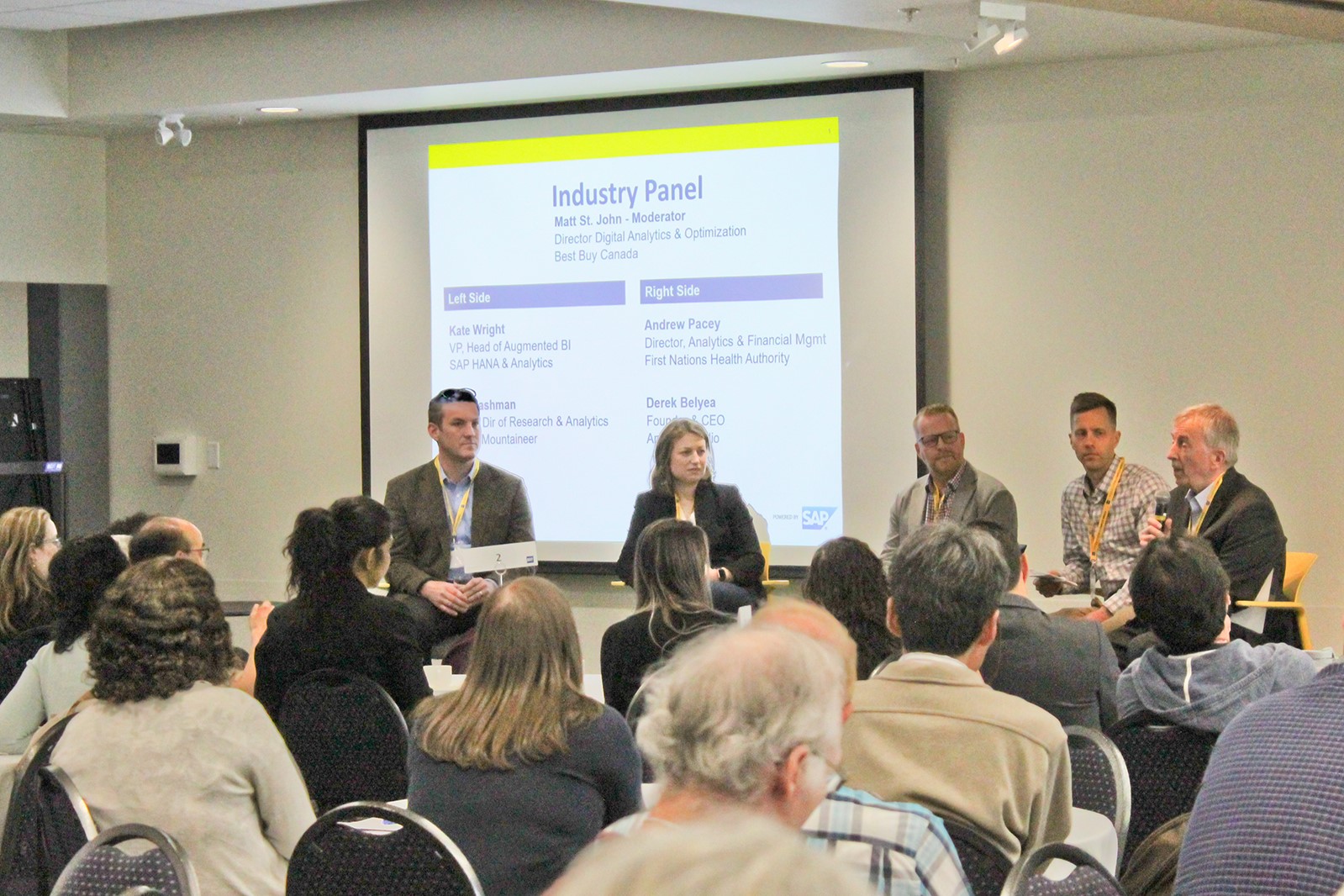With data everywhere – and constantly growing – how can BCIT make sure grads are well equipped to be able to harness it? That was a key theme at last week’s Analytics Meetup hosted by the BCIT Centre of Excellence in Analytics, Powered by SAP.
Over 75 participants enjoyed presentations, industry panel insight, and collaborative capacity-building activities. “The purpose of the event was to start an Institute conversation about analytics education with faculty and staff from all parts of BCIT,” explains Jenness Murray, the Chair for the Centre of Excellence in Analytics.
“By hearing directly from industry about their hiring challenges, skill gaps and the expected future of the field, we are able to identify our own education and resource gaps in meeting this need.”
What tech can’t offer
Keynote Joyce Drohan, Partner & BC Leader of Omnia Artificial Intelligence (AI) at Deloitte, encouraged BCIT to emphasize soft skills and hard lessons. She told the crowd that people especially need to hone the skills that are challenging for computers – think ethics, creativity, complex reasoning, and teamwork. She also said students need to learn how to fail, so they can build the resilience and risk tolerance that will help them succeed in their careers. Joyce pointed out that periodic learning, including retraining for new jobs, will definitely feature prominently in the future as more tasks are automated.
Have you subscribed? Sign-up to receive the latest news on BCIT.
Analytics industry panel
An industry panel joined moderator Matt St. John, Director of Digital Analytics and Optimization for Best Buy, to further develop an image of ideal grad qualities:
- Andrew Pacey, Director Analytics and Financial Management, First Nation Health Authority
- Derek Belyea, Founder and CEO, Analytix Studio
- Kate Wright, Vice-President, Head of Augmented Business Intelligence, SAP Hana & Analytics
- Will Cashman, Senior Director Research and Analytics, Rocky Mountaineer
While their sector expertise was diverse, panelists all emphasized the need for a tech trifecta: a mix of technical expertise and business acumen complemented by industry-specific knowledge.
The group felt that students could gain a lot from dealing with the kind of messy data that’s common in the real world. Data projects are often like puzzles and students need to learn a range of approaches, as well as patience and persistence.
How can BCIT help build BC’s data culture?
Meetup participants turned to brainstorming midday, taking the advice from industry and making it actionable in programs and operations. As they seek to further develop the analytic skill sets of BCIT grads, they’ll have some help.
“There are many of us teaching, learning, and doing analytics all across BCIT, but most of us are working alone,” explains Amy Goldlist, the new Data Analyst in Residence at BCIT. “My role will focus on connecting faculty and staff from around the Institute, and learning how we can best share resources and cooperate.” Amy is able to help staff analyze data, suggest curricular additions, or find suitable datasets.
Data for Good
The co-founder of the Vancouver Chapter of Data for Good joined the meetup for a closing presentation on inspiring uses of data to improve our communities. Peter Kim talked about “DataThons” that bring together data experts for short day-long sessions to coax insight out of complex data sets. They’ve tackled topics ranging from drug overdose prevention to ensuring service industry labour standards are being met, giving local data whizzes a chance to contribute meaningfully to social issues.
It’s bound to be a busy year ahead as Amy and the rest of the Centre’s team work to enhance BCIT’s – and thus BCIT grads’ – analytics capacity.
SEE MORE: Building eco-literary through applied ethics: enter the great debates
